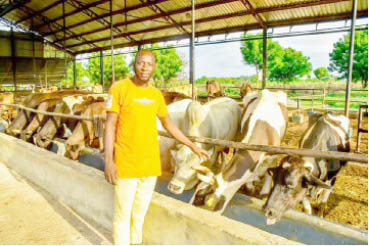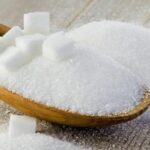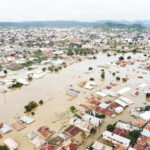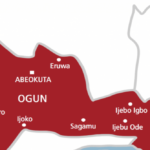Over 12,000 dairy farmers have benefitted from the dairy development initiative championed by Frieslandcampina WAMCO under its backward integration drive. Daily Trust reports that the initiative has boosted local milk production and incorporated farmers in the milk supply value chain.
The dairy development initiative has been able to achieve a three-pronged objective of growing dairy value chains from farm to business, boosting food security and sustainable milk production and raising the standard of living of the dairy farmers in local communities.
For over 12 years, FrieslandCampina WAMCO has been sourcing raw milk locally for manufacturing. The company is the highest off-taker of fresh milk produced locally from five states in Nigeria, enabling thousands of farmers to increase their milk production and improve their milk quality with access to the market as the company purchases their local raw milk which is processed into nutritious dairy products for the Nigerian market.
FrieslandCampina WAMCO’s Dairy Development initiative currently operates in various communities across Oyo, Osun, Ogun, Kwara, Ondo, Niger, Abuja and Vom, Plateau respectively.
WIMIN to combat child, gender abuse in mining sector
New exchange rate jacks up int’l airfares
With its expanding production capacity and the need for raw milk to meet demands, the dairy company has invested in local dairy development through the empowerment of local dairy farmers who supply part of the raw milk used for production.
In addition to reinvesting back into the country, supporting the government’s local content initiative and empowering the locals, the diary development initiative is proving to be a veritable means of tackling the perennial problem of farmers-herders’ confrontation through the encouragement of ranching among the farmers.
The locally sourced milk from these farmers is collected through its 29 Milk Collection Centres (MCC) in the different farmer communities, then transported to FrieslandCampina WAMCO plant in Lagos where it is processed into nourishing yoghurt drinks and evaporated milk.
During a field trip to some of the villages in Oyo State recently, it was revealed that thousands of dairy farmers have been empowered through the initiative by providing them with the needed capacity to ranch their cows.
The model focuses on working with pastoralists, smallholder dairy farmers and commercial farms, with support from various partners such as IFDC-2SCALE, Bles Dairies, Wageningen University, Federal Ministry of Agriculture and Rural Development (FMARD) and the Central Bank of Nigeria (CBN).
The villages visited included Iseyin, Maya and Fashola where the company has its milk collection centres and points.
To boost its dairy development activities, the Value4Dairy Consortium was also launched in April 2021, which is made up of four strategic partners namely FrieslandCampina WAMCO, URUS (the largest cow genetics company in the world), Barenbrug (a leading grass seed company) and Agrifirm (a leading feed and supplement company in the Netherlands).
With proven track records in various agri-related value chains, the consortium is making solid progress in implementing sustainable strategies to fast-track growth and development of the Nigerian dairy sector.
Daily Trust’s Golden Harvest reports that it was the partnership that birthed the introduction of Girolando breed in Nigeria which is described as the future of milk production in the country after signing an agreement with a local breeding farm, SMAP Farms Limited.
In 2022, 1400 Girolando semen straws were produced and 610 artificial inseminations achieved with no fewer than 30 crossbreed Girolando calves already birthed till date.
The Head of Dairy Development, Adekunle Olayiwola said, “FrieslandCampina WAMCO manages the entire chain from grass to glass; from the grass that the cows eat all the way to the dairy products for consumers. In other words, we manage and control every phase of the “grass to glass” process.
“Each step between milking the cows, guaranteeing quality in the factory and delivering safe and highly nutritious products to the stores is a step they take themselves.”
Our correspondent also visited Maya demonstration farm located in Ibarapa local government, Maya town in Oyo State, which was set up to train dairy farmers in Nigeria on best dairy management practices and technologies in alignment with the federal government’s backward integration programme.
The 20-hectare farm is fertile and arable with sandy-loamy soil. It has two seasonal streams, one of which originates from a spring within the farm. A variety of trees have been planted on the stream beds for environmental sustainability.
The objectives of setting up Maya breeding farm, according to Friesland, was to be a world-class dairy business model and demonstration farm, for dairy farmers in Nigeria and beyond; to be a dairy breeding centre using artificial insemination with high-quality Girolando semen for local indigenous cows to improve productivity and to demonstrate sustainability by planting trees on 10% of the land (two hectares), through the use of renewable sources of energy and solar power biogas from manure.
Maya farm has infrastructure at various stages of completion including: A shed to accommodate 60 cows, a silage bunker to conserve maize or grass silage, boreholes, hay barn, implements shed, feed mill, calf and heifer pens and several other facilities.
The farm will act as a breeding ground for dairy cows, both indigenous and crossbreeds Girolando cows from Brazil. The cows will be milked using milking machines and the milk collected will be delivered to a cooling centre in Maya for preservation. The farm will supply excess heifers to other demonstration farms and will also have a feed farm in Fashola (300 hectares) which will supply hay and silage all year round.
One of the dairy farmers, Moyosore Rafiu, who is the CEO of Genus Dairy Farms Ltd, testified to the intervention which has transformed his farm.
“With their support, I have also been able to acquire more cows and several acres of land for grazing and ranching,” he added.
“WAMCO introduced us to a larger and steady market where we can sell our milk. We used to do a maximum of 1.5 litres, but now we do over 20 litres of milk on each cow and WAMCO ensures that we sell our products.”
An official who spoke with our correspondent also confirmed that the dairy development initiative has provided a veritable solution to tackle the age-long farmers-herders’ crisis as Fulani herders are now embracing ranching instead of moving their cows about and in the process destroying farmlands.
“We are trying to bring in more smallholders into the business because we have seen the future. The Fulani people that have embraced this, we have people who are ready to keep cows for them to be inseminated and at the same time trying to have a kind of pasture and ranch the animals. They see it as a good way of doing dairy business. Part of why we have these farms is to tell them and train them that it is possible; it is doable,” he said.

 Join Daily Trust WhatsApp Community For Quick Access To News and Happenings Around You.
Join Daily Trust WhatsApp Community For Quick Access To News and Happenings Around You.


